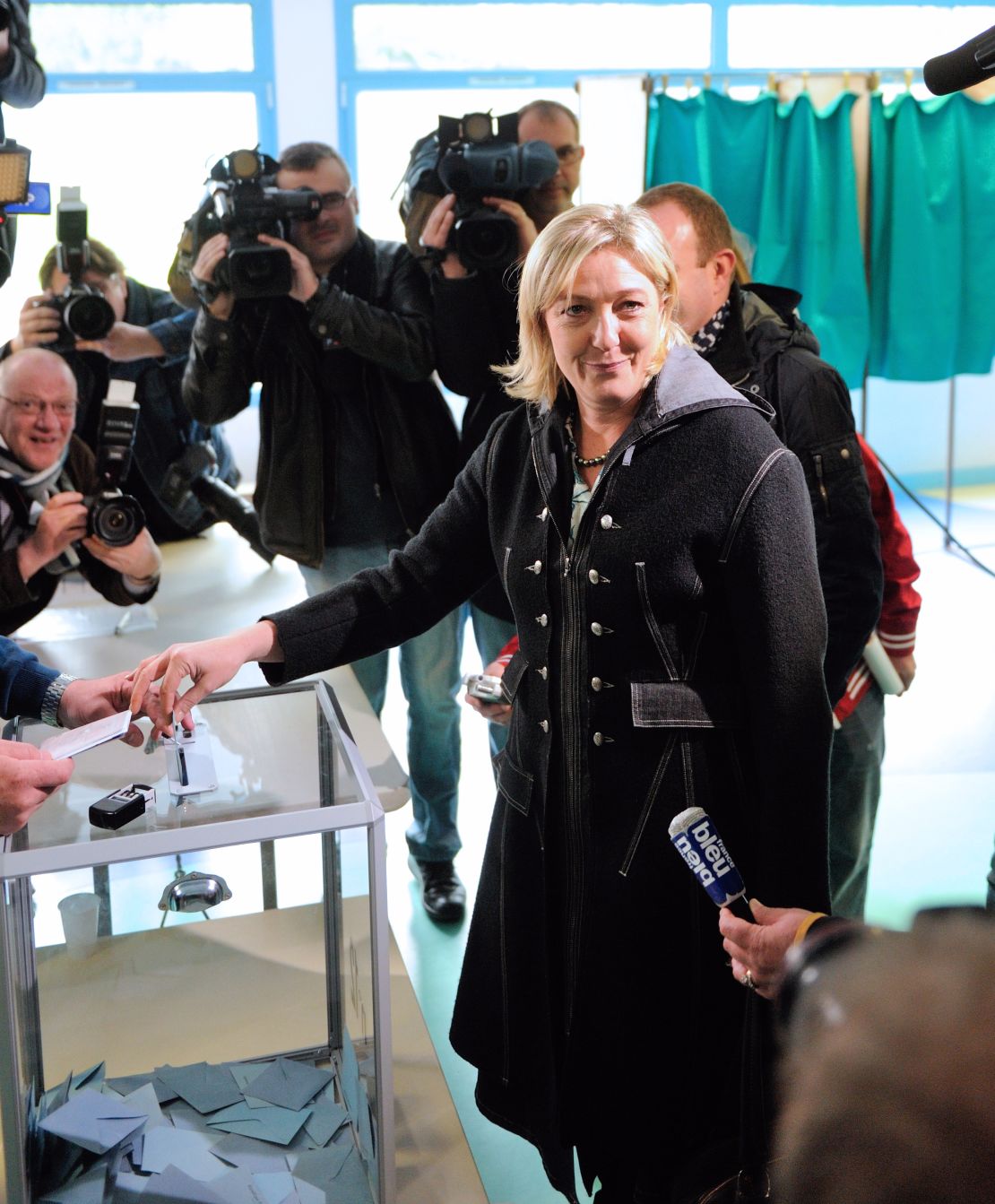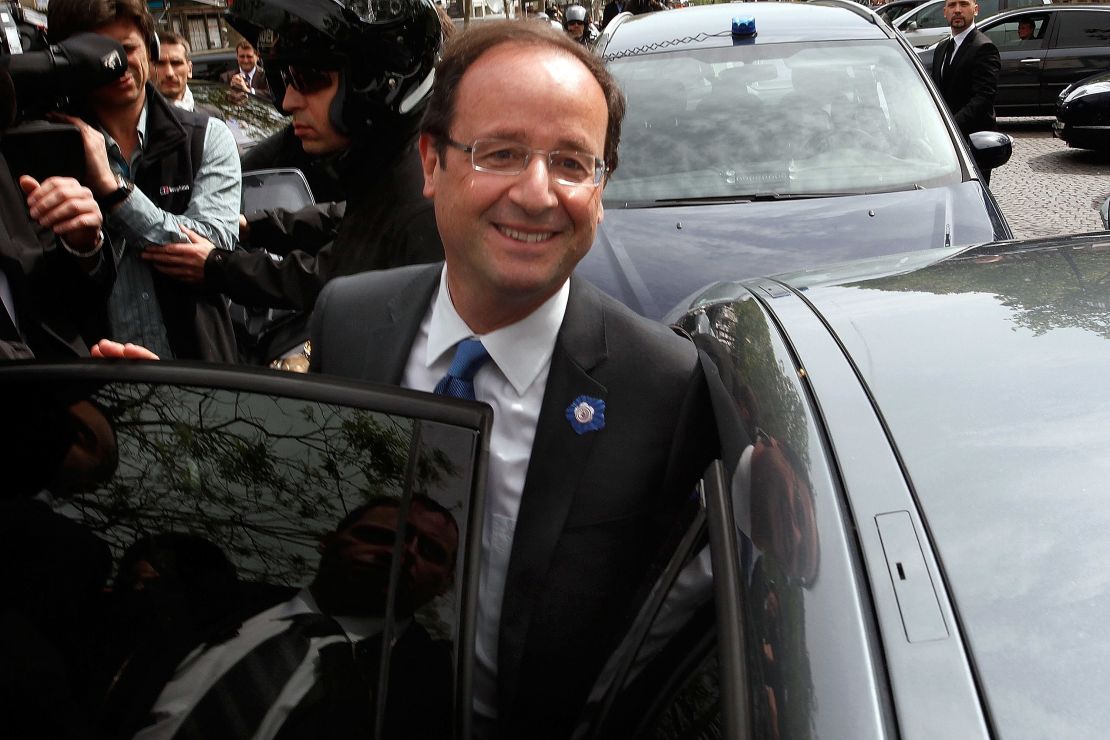Story highlights
Greece's extreme-right Golden Dawn party wins 7% of the vote
France's National Front places third in first-round voting, influences runoff race
The far right has seen gains in Austria, Belgium, Hungary, Scandinavia and elsewhere
Analysts say the austerity crisis is only one factor in the far right's rise in Europe
Two European elections, in France and Greece, have thrust the radical fringe into the spotlight.
In Greece, voters disillusioned by a brutal austerity program pushed through by the two mainstream parties have turned instead to parties on the far left and far right.
As a result, a leftist coalition opposed to austerity is seeking to form a government, and Golden Dawn – an ultranationalist party linked to street violence and neo-Nazism – stands to claim around 20 seats in the new parliament.
France saw a swing to the left in Sunday’s runoff, with Socialist Fran?ois Hollande ousting center-right incumbent Nicolas Sarkozy from the élysée Palace.
But the strong showing by far-right National Front leader Marine Le Pen in the first round of the presidential election undoubtedly played into campaigning, with both candidates reaching out to the 6.5 million voters who backed her. Each pledged to crack down on illegal immigration, though Sarkozy went further in promising to cut the number of legal migrants by half in the next five years.
Two very different outcomes, but with a common thread: the efforts of extremist parties to win support by plugging into popular discontent over the financial crisis, against the backdrop of a wider social unease and anti-immigrant sentiment.
Across Europe, anger at a perceived mismanagement of the economic crisis, and accompanying high unemployment, low growth and painful cuts, has seen a string of governments fall

Ireland, Portugal, Spain, Finland, Romania and Italy are among them as well as the Netherlands, where the refusal of the far-right Freedom Party to back austerity measures led the government to collapse last month.
The current turbulence of Europe’s politics may lead to more uncomfortable alliances in the future – although such attempts can also backfire.

Keen to swing France’s sizable far-right bloc behind him, Sarkozy vowed to keep an open ear to the concerns of the National Front, even as he ruled out any formal pact with the party.
“I refuse to demonize the men and women who in voting for Marine Le Pen expressed a crisis vote, a vote of anger, a vote of suffering and a vote of despair,” he said on French radio. “I have to take their message into account, I have to listen to them, I have to hear them and not hold my nose.”
But many critics perceived him as lurching far to the right on issues such as immigration.
Announcing his decision to back Hollande, centrist Fran?ois Bayrou, who took 9% of the vote in the first round, said he could not support Sarkozy because the views he now espoused were incompatible with his party’s values.
Even so, will the region’s economic insecurity translate into greater gains for the far right?
Europe’s far-right parties are definitely seeing a resurgence, according to Matthew Feldman, director of the Radicalism and New Media Research Group at the University of Northampton, but the trend is not universal and the austerity crisis is only one part of the picture.
He said the far-right movement has been gaining ground for years, thanks partly to efforts to revamp its previously overtly racist and fascist image.
This doesn’t mean that those racist or Nazi-sympathizing elements don’t still exist within different countries’ far-right groups, he said, but those at the top have often learned to present a more acceptable public face.
Instead of open racial attacks, they play up a threat to national identity and criticize multiculturalism, particularly as it relates to Islam, Feldman said.
On the campaign trail, National Front leader Le Pen called for France to leave the eurozone and restore its currency, the franc, as well as criticizing its political integration into the European Union.
But her rhetoric also drew on an anti-immigrant, anti-Muslim sentiment that has deep roots in France and elsewhere. That discourse was likely also a factor in Sarkozy turning the labeling of halal meat into an election issue and his comments that there are “too many foreigners” in France.
The more research he does, Feldman said, the more it seems that “the lowest common denominator of this entire far-right narrative is that Islam is barbaric and a threat to European stability and peace.”
A report by rights group Amnesty International last month highlighted the issue, saying Muslims in Europe face discrimination in education, employment and religious freedom.
Feldman draws a parallel with the anti-Semitism of the 20th century and earlier.
“We are still seeing ‘Europe for the Europeans,’ and that’s something we could have seen 80 years ago,” he said. “History doesn’t give us perfect examples of replaying the past, but I think there’s a lesson to take away.
“In times of uncertainty and great change, finding scapegoats has always been a populist vote winner, and the scapegoat in this century is Muslims in Europe.”
Michael Minkenberg, a professor of political science at Germany’s European University Viadrina in Frankfurt (Oder) who has also taught at New York, Cornell and Columbia universities, said he sees concern over immigration, law and order “and the feeling that things aren’t what they used to be any more” as being at the heart of support for Europe’s radical right.
Euroscepticism, as resistance to greater European political integration is known, is also on the increase, he said, and “there’s this anxiety about what will happen, a growing complexity and not much reassurance from either national governments or the European Union.”
Coupled with a mistrust of the political elite, this has also led to a swell of support for the far right in Austria, Belgium and Scandinavian countries, Minkenberg said, while in Hungary, the far-right Jobbik party won a significant chunk of the vote in 2010.
Despite that trend, analysts caution against drawing sweeping conclusions from the far right’s gains in France and Greece.
The National Front has been well-entrenched in France’s political life for decades under Jean-Marie Le Pen before his daughter Marine took charge last year, said Thomas Klau of the European Council on Foreign Relations.
As such, its achievement in taking a fifth of the votes in the first round of voting, while notable, did not indicate a sudden rise to prominence for the far right, he said.
Hollande told the daily Liberation newspaper ahead of the runoff that he saw the strong showing for the National Front as an expression of people’s “social anger” rather than a firm adherence to the party’s more extremist views. It revealed a discontent particularly in rural areas and among working-class voters, he said, with many feeling abandoned by the government.
Perhaps reflecting that disillusionment, 2 million French voters deliberately spoiled their ballot papers after Marine Le Pen said that was what she would do.
Nonetheless, Klau argues that a feature of recent ballots in Europe has been the readiness of voters to change their governments without turning to the political extremes, as seen in Spain’s election in November.
“Voters have been single-minded across the eurozone in terms of expressing their dissatisfaction at how the crisis has been run by the government in charge, whatever their political hue,” he said. “But at the same time, they have sufficient confidence in their own political system to replace their governments with the mainstream political opposition.”
In Britain, local elections last week saw big losses for the coalition government of the Conservatives and Liberal Democrats, blamed for unpopular austerity measures.
But there was no accompanying swing to the radical fringe, Feldman said. The far-right British National Party in fact lost all six of the seats it was defending in local councils and failed to win any new ones. The opposition center-left Labour Party was the main beneficiary of the coalition’s losses.
In the Netherlands, Klau said the impact of Dutch politician Geert Wilders’ decision to withdraw his Freedom Party’s support for the government, triggering its collapse, would have only a temporary destabilizing effect.
The economy will be central to the election of a new government, with elections due in September, but the far right does not attract the same level of support as in France.
Wilders, who wants a referendum on the euro, preferred to exit the coalition than lose political credibility by backing the painful cuts demanded by Europe, said Kostas Gemenis at the University of Twente in the Netherlands.
Those demands from Europe are also at the heart of Greece’s political turmoil as voters in the heavily indebted nation revolt against the harsh budget-cutting medicine doled out by the European Union and International Monetary Fund.
The success of Golden Dawn, with its unprecedented 7% share of the vote, is a manifestation of what could be described as economic meltdown, Feldman said.
But at the same time, he said, “7% is too much, but it’s not 27% or 37%. I’m not sure now is the time to panic about the rise of the far right. Golden Dawn is not something that is replicable across Europe.”
And while Golden Dawn gained strength, another far-right party, LAOS, lost its small presence in the 300-seat parliament as voters punished it for its support for Greece’s austerity program, Gemenis pointed out.
Gemenis said the profile of the Golden Dawn voter – revealed through the Choose4Greece website he jointly set up to help voters work out their political affiliation amid a welter of parties – was typically male, aged under 50 and from a lower educational background.
Some 45% of those who said they intended to vote for Golden Dawn this time around had backed one of the two mainstream parties, PASOK and New Democracy, in 2009, while a fifth had backed LAOS, Gemenis said.
If the far-left Syriza group fails to form a workable coalition, it seems likely a new Greek election will be called next month.
But whether this will mean further gains for Golden Dawn is hard to predict, Gemenis said.
“The framing of the issue by the media might play a role, but it is impossible to say what will be the consequences of the media attacking the far right versus tacitly ignoring it,” he said, referring to the approach taken by Greek media so far.
So, does the far right present a broader threat to European freedoms?
How extreme the anti-immigration debate becomes depends very much on the individual country, Minkenberg said.
Farther east, a different strand of far-right thinking dominates in countries such as Poland, Hungary, Bulgaria and Romania, he said. There, far-right groups poll around 10% but tend to be more nationalistic in tone, he said, with anti-Semitism and anti-Roma views seen as more legitimate than elsewhere in Europe.
Feldman highlights the far right’s recent apparent moves to establish a pan-European cultural movement that has Islam in its sights as the biggest risk.
Far-right groups from Scandinavia, the United Kingdom, Germany and Eastern Europe gathered last month in the Danish city of Aarhus for what they said was a rally to make their governments aware of the threat of Islamic extremism.
Although it was dwarfed by a left-wing counterdemonstration, the protest was significant as an attempt by the far-right groups to create a common trajectory, he said. Less clear is how much traction their extreme views can gain.
“It’s clear that a large minority across Europe isn’t comfortable with these things – demographic change and multiculturalism,” Feldman said. “But what the far right offers is not something that many can accept.”
